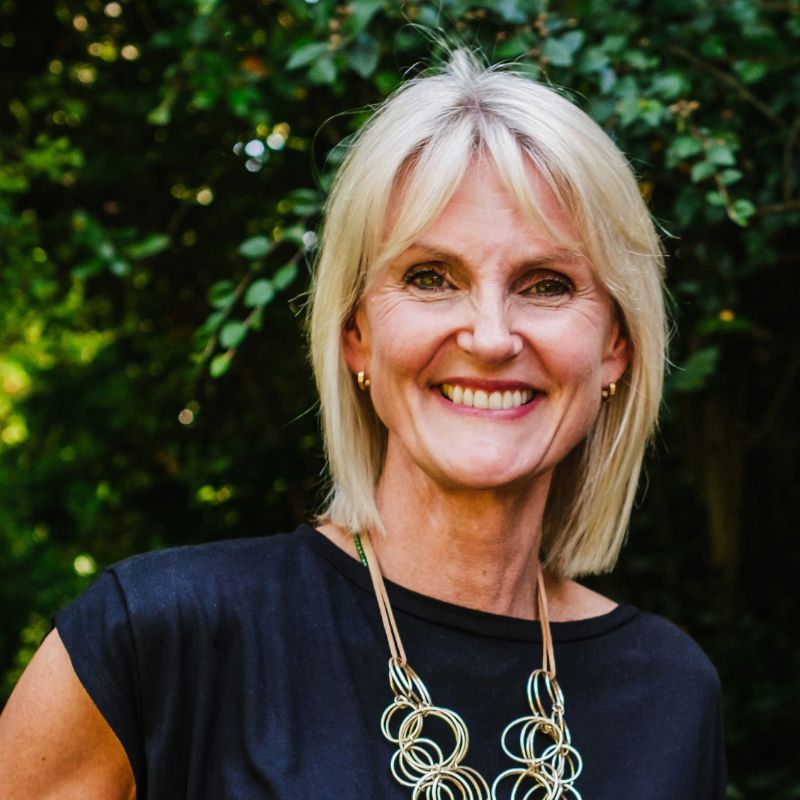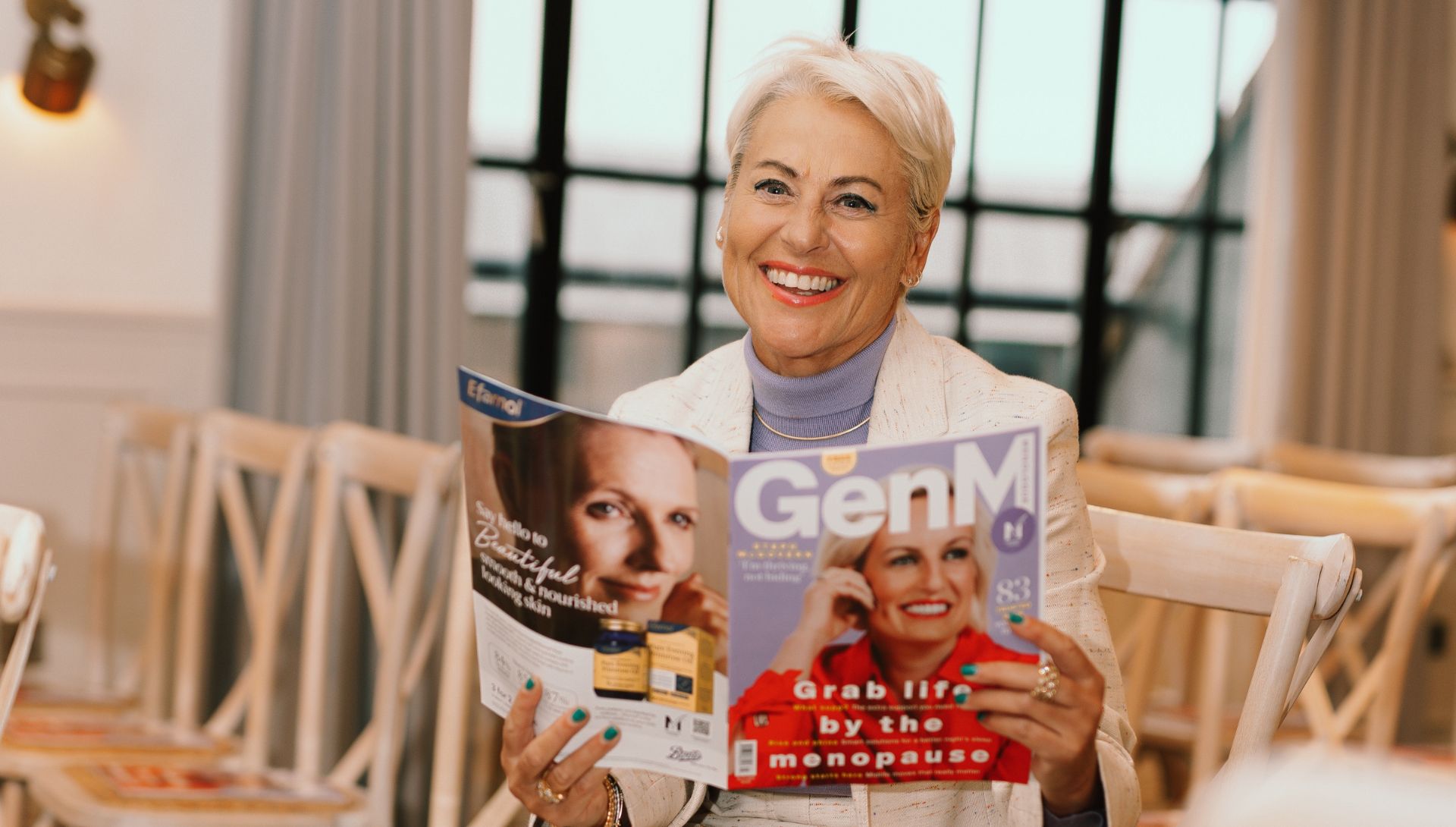
It feels like a particularly cruel twist of nature: just as women are reaching the peak of their careers in their 40s and 50s, menopause strikes. For some women, their symptoms are mild enough not to interfere with their nine-to-five too much. For many, perimenopause can make the daily grind feel like an uphill battle, resulting in missed promotions, sick leave, and even quitting altogether.
The British Menopause Society estimates that around 80 to 90% of women will experience menopause symptoms, with 25% of them describing them as debilitating. Inevitably, this impacts work. A study by The Fawcett Society involving 4,000 menopausal women (the largest survey of its kind) found that 14% of women had reduced their working hours because of their symptoms, 8% avoided going for promotion, and 10% even resigned.
But does it have to be like this? Luckily, conversation around menopause in the workplace is growing louder, with industry leaders and the Government recognising it as a significant health and wellbeing issue. Yet policies for the workplace won’t become mandatory until 2027, and then only for organisations with over 250 employees.
So, what can women do right now, wherever they work, to keep their careers on track while navigating these choppy waters?
Three women in the corporate world tell woman&home how they experienced menopause while holding down a full-time job, and what they did not just to survive but to thrive in their careers. Plus, we ask leading experts to share practical advice on how to manage symptoms at work and keep your professional mojo.
Marriane Dias, 50, sales operations director

"I’m very frank and candid with them."
In her role leading a team in a large media organisation, Marriane Dias is used to performing in a high-pressure environment. But when she entered perimenopause at the age of 45, things changed.
“I started to feel very anxious and overwhelmed, like I wasn’t good at anything anymore, even though this was a job I’d been doing for years. I would cry a lot, and that’s just not me. At one point, I felt like I was losing my marbles,” she recalls. Alongside her crisis of confidence came physical symptoms, including brain fog and hot flushes, “I could feel them start in my feet and creep up my body with nothing stopping them”.
Sign up to our free daily email for the latest royal and entertainment news, interesting opinion, expert advice on styling and beauty trends, and no-nonsense guides to the health and wellness questions you want answered.
She wasn’t the only one going through it: her boss was also menopausal, which led to the occasional clash. Not wanting to ruin her work relationships or her performance, Marriane decided that she wasn’t going to struggle quietly with perimenopause. “I manage a predominantly female team, and I’m very frank and candid with them, as I am with other male colleagues. I encourage my team to do the same. One day I might be dripping with sweat at my desk and fanning myself, then another day I’ll completely forget my train of thought in a presentation but say, ‘it’s brain fog, bear with me!’.
“Dealing with symptoms, such as a hot flush in front of everyone in the office, used to make me very anxious. But I’m not ashamed of menopause anymore and don’t feel like I need to apologise for it. If I feel hot in a meeting, the fan comes out."
Marriane recognises that she is fortunate to have an employer that supports women in menopause with an inclusive workplace culture, but she realises it’s not the same for all working women. She’s currently supporting a campaign led by bra-maker Royce that is speaking up about menopause and helping make all workplaces menopause-friendly, particularly small organisations that fall outside of the new obligations.
Marriane continues to be candid on her Instagram platform @40plusandfab, where, alongside her fashion content, she shares the ups and downs of her menopausal journey. From her own experience, she recognises the power of conversation and says to anyone currently suffering in silence at work, “Don't be ashamed, don’t be embarrassed, just talk about it.”
Dominique Kent, 51, CEO of Bluecrest

"Alongside HRT, I made practical changes."
The first time Dominique Kent experienced brain fog at work is a moment she remembers all too clearly. “I was writing an email and suddenly I couldn’t find the most basic of words. At first, I thought I was just stressed, but when it didn’t go away, I started to panic. I was in my late 40s, but I genuinely thought I might have early-onset dementia.
“When you’re a CEO, your mind is your greatest tool, so losing words mid-sentence or in meetings was frightening. It made me question my confidence and capability in a way I’d never experienced before.” Her symptoms worsened, culminating in a particular low point: “In one 24-hour period, I had 34 hot flushes. It was relentless. I just couldn’t keep pretending everything was fine,” she admits.
She started logging and researching her symptoms, and after failing to get a face-to-face appointment with her GP, she saw a private specialist. “It wasn’t cheap, and I know not all women can afford that, but I was desperate. That appointment changed everything for me – when I learned that word-finding difficulty is a menopause symptom, I felt huge relief.”
After her menopause diagnosis, things improved significantly for Dominque. “It helped me understand what was happening and how to manage it. Alongside HRT, I made practical changes. I took rest seriously, improved my sleep, ate better – including good levels of protein – exercised with an emphasis on resistance training rather than cardio, and I paced my workday. I also tried to stop seeing myself as invincible – although that’s something I’m still working on.”
Although she was now managing her symptoms, as CEO, she hid what she was going through: “There’s still a stigma around menopause, and in leadership there’s the added pressure to appear in control, particularly as a woman in midlife. Looking back, the initial instinct to mask it only made things harder.”
Eventually, Dominque realised that being transparent at work was the way forward – not just for her, but for all the women around her who were quietly going through the same thing. “At Bluecrest, we’ve built a culture where menopause is part of the wellbeing conversation, including a menopause policy that’s active and lived, not just a line in a handbook. Being honest about my experience has strengthened my leadership by building trust, empathy and openness across the team. We’re in it together irrespective of role – that’s important in creating a culture where people feel safe.”
Heather Jackson, 56, CEO and co-founder of GenM

"I started to focus on the quality, rather than quantity, of what I was putting into my body"
As a woman in business, Heather Jackson understood the power of appearing strong and capable. “I’ve always lived authentically and unapologetically, and believe women shouldn’t feel the need to hide any part of their experience, including menopause. But when my own perimenopause started, I didn’t understand what was happening to me. I wasn’t masking it, but I wasn’t acknowledging it either,” she admits.
It took a frightening episode at work for her to accept it. “I was due to speak at a conference in Edinburgh for my previous business when I woke in the middle of the night with a crushing pressure on my chest. Convinced I was having a heart attack, I went to the hospital. After several tests, I was told it wasn’t a heart attack but a panic attack. I felt embarrassed and confused. Only later did I learn that panic attacks and heart palpitations can be related to hormonal changes linked to perimenopause.”
For Heather, it was a lesson in awareness and acceptance, which made her rethink how she looked after herself: “I started to focus on the quality, rather than quantity, of what I was putting into my body. Sleep was another important focus, so I invested in climate-controlled bedding and a thermo-regulating mattress to beat night sweats and wake up ready to make better choices for my wellbeing. I did trial HRT, but it didn’t work for me personally. It can play an important role for some women, but nutrition, sleep and other lifestyle choices all matter too.”
Looking back, Heather recognises that the instant she acknowledged she was perimenopausal was a pivotal moment in her career: “Everything started to make sense, and within 24 hours the idea for [what became] GenM was born.”
GenM is a menopause partner for brands and retailers, and home of the MTick, a universal symbol that helps women identify menopause-friendly products and make informed choices.
Far from derailing her career, Heather believes menopause has turbo-charged it. “I wouldn’t be where I am today if it weren’t for the challenges and insights it brought. I wasn’t planning to start a new business, but I saw a need that had to be addressed. Menopause is becoming as recognisable as the vegan movement, and my mission is to make the experience better than it was yesterday.”
She adds, “I can say with absolute certainty that I’m now living my best life. I refuse to be the stereotype of a fed-up menopausal woman. Instead, I see this stage as a time to be game-changing, category-making and legacy-shaping.”
How to manage menopause symptoms at work
1. Prepare for brain fog
Struggling to find the right words or losing your train of thought can be frustrating at work. Dr Louise Newson, a GP and leading voice on menopause care, explains that oestradiol, progesterone and testosterone all affect brain function, so when they fluctuate and fall, it impacts memory and clarity of thought.
“This is a biological response, not a personal failing, and it can be improved with the right dose and type of hormones,” she says.
Dr Claire Kaye, a career coach and award-winning former GP, suggests preparation and openness can help you at work. “Before any meeting, write down your key points and the names of the people attending, as these are often the first things to slip your mind.
“If you lose your train of thought, have a few phrases ready to give yourself space, such as, ‘That’s a great point, what do others think?’. Being upfront about it can also help you stay calm and normalise what’s happening," she says.
2. Avoid anxiety spirals
There's a strong link between menopause and anxiety, says Dr Kaye. “It’s a vicious circle: anxiety heightens symptoms, and symptoms increase anxiety.”
To break the cycle, she recommends a ‘box breath’ exercise you can do at your desk. Breathe in for a count of four, hold for four, breathe out for four, hold for four, and repeat.
“You can also try reframing your thoughts. Change ‘I can’t cope’ to ‘this feels harder today, but I’ve done it before and can do it again’,” she suggests.
3. Minimise hot flushes
They can appear at the most inconvenient of times, but you can reduce their severity and frequency, says Dr Newson. “Hot flushes occur when falling hormone levels affect an area of the brain called the hypothalamus, which controls body temperature, making your body suddenly feel overheated even when it isn’t.”
She says that replacing hormones with the right dose and type is the most effective way to reduce or even stop hot flushes.
As an alternative to HRT, Dr Kaye recommends using a fan and sitting by an open window to relieve discomfort. Also, “reduce your intake of caffeine and spicy food, and stay hydrated. Wear breathable layers so you can cool down quickly, and think about colour as well as material to avoid worrying about sweat marks,” she adds.
4. Manage energy levels
Even with all the best sleep aids, most women will struggle with disrupted sleep in menopause. Compounded by low energy during the day, work can feel like wading through treacle.
Alongside hormone treatments, Dr Newson recommends creating plenty of healthy habits in your routine. “Gentle movement, like walking or stretching, can boost circulation and focus, while a balanced diet with wholegrains, protein and healthy fats helps maintain energy levels throughout the day. On low-energy days, listen to your body, pace yourself and take short breaks.”
Dr Kaye adds, “If you can, arrange flexible working so you can start later or focus on demanding tasks at the time of day when you naturally have more energy.”
5. Change your mindset
Changing your attitude towards menopause can make a big difference. “This is a time when women are at their most experienced, capable and valuable: menopause doesn’t take that away. This stage can be an opportunity to pause, reflect, and redefine what you want and need,” says Dr Kaye.
“Buddy up with someone at work who understands. Having a ‘menopause buddy’ provides empathy, reassurance, and a reminder that you’re not alone,” she adds.
Influencing managers and colleagues also helps nurture a menopause-friendly workplace for everyone. “Employers play a vital role,” says Dr Newson. “By introducing proper support systems and creating open, safe spaces where women feel heard and understood, employers can make a significant difference in women’s health and wellbeing.”

Kerry is a freelance writer covering health, fitness and wellbeing. With bylines in several national publications alongside woman&home - including Stylist, Red, Metro, Good Housekeeping and more. She has written about the latest news and trends in exercise, nutrition, mental wellbeing, alternative health, ecotherapy, health tech, relationships...in fact, anything that impacts our bodies and minds. Outside of work, she can be found doing her most important job (parenting) while trying to squeeze in time for exercise and escaping into nature whenever possible.
You must confirm your public display name before commenting
Please logout and then login again, you will then be prompted to enter your display name.
